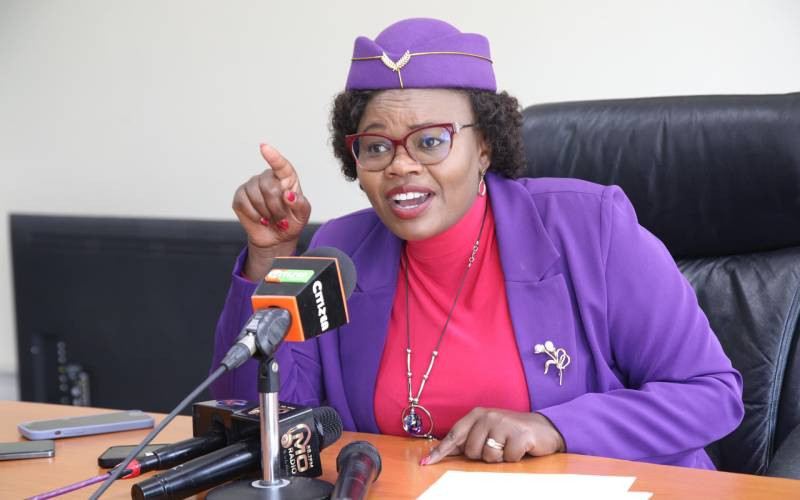Varied Reactions to Kenyan President Ruto's Apology

President William Ruto's public apology, issued during the 22nd National Prayer Breakfast on May 29, 2025, following a sermon by former NFL star and American preacher Rickey Bolden who urged reconciliation with the youth, has elicited a spectrum of reactions from Kenyan political figures and parties. Responses have ranged from conditional support to outright dismissal, with calls for accountability and tangible action taking center stage.
Githunguri MP Gathoni Wamuchomba was among the staunchest critics, labeling the President's apology "too late" and mere "rhetoric." She contended that forgiveness could not be granted without accountability for young protesters who allegedly disappeared or were brutalized during the June 2024 anti-tax demonstrations. Wamuchomba emphasized, "Telling us to forgive him when he has been unable to recover the economic status of this country is rhetoric. Asking for forgiveness without producing the missing Gen Zs who disappeared is rhetoric. We require and demand more from him."
Wamuchomba further criticized President Ruto’s economic policies, accusing him of planning to burden low-income earners in the upcoming budget by removing reliefs previously given to factory and informal sector workers. She also lambasted his advisory team, describing it as "bloated" and "incompetent," and called for the dismissal of his twenty advisors, whom she accused of "looting our money and doing nothing." The MP also questioned the utility of the President's costly nationwide tours while public services allegedly suffer, citing an incident at Igegania level 4 hospital in Gatundu North where a child reportedly died due to a lack of medical personnel, and highlighting the suffering of expectant mothers, unmanned hospitals, and shortages of critical vaccines like BCG and polio. She noted that doctors in her constituency of Kiambu County were on strike over working conditions.
In contrast, Nandi Senator Samson Cherargei expressed support for President Ruto’s apology, urging Kenyans to embrace the gesture as a significant step toward national reconciliation. Speaking on Spice FM, Cherargei conveyed his disappointment with those downplaying the apology, stating, "I believe that, as a human being, the highest you can go is to apologise, and he did that—to Gen Z, Tanzanians, Ugandans, and anyone else he may have wronged." He emphasized the importance of national unity and humility, suggesting Kenyans should accept the gesture and move forward, adding, "The courage of a leader to ask for forgiveness—I expected Kenyans to leave it at that."
However, Senator Cherargei also stipulated that reconciliation must be complemented by concrete actions, particularly concerning justice for unresolved human rights issues. "Reconciliation should also come with accountability. There is a need to fast-track cases of extrajudicial killings that are allegedly committed by the police," he remarked. Cherargei also pointed to shortcomings in the government's communication strategy, suggesting that poor messaging could dilute the impact of the President’s intentions, even if genuine. "There must be a proper communication channel—when the President says he has apologized and means well for the country, the people responsible for communication must step forward and convey that clearly, so the message is easily understood."
Kenya’s opposition parties, including the People’s Liberation Party, Jubilee, Wiper, KANU, DAPK, and DP, jointly delivered a more scathing critique, dismissing President Ruto’s apology as "insincere" and "hollow political theatre." In a joint statement, they argued that while this shift in tone was welcomed, the apology lacked genuine accountability and concrete commitment. They accused the President of presiding over a regime increasingly intolerant of dissent.
A central point of contention for the opposition was what they described as the President’s failure to defend Kenyan citizens abroad, specifically citing the detention and controversial deportation of PLP leader Martha Karua and activist Boniface Mwangi from Tanzania. They termed Ruto’s silence on these events "a betrayal of the constitutional duty to protect all citizens" and "an indictment of his nature and penchant for clawing back on human rights gains." Beyond this, the opposition highlighted a broader pattern of alleged repression under Ruto's administration, including abductions, torture, and politically motivated prosecutions designed to weaken the opposition and silence voices, particularly among Gen Z activists.
Consequently, the opposition parties laid out several demands. They called for justice for victims of extrajudicial killings and enforced disappearances, alongside full reparations for affected families. They also insisted on the immediate withdrawal of legislative proposals they believe are designed to curb digital freedoms and "muzzle social media, which remains a vital tool for civic engagement and accountability." Furthermore, they reminded President Ruto of his responsibilities as Chair of the East African Community (EAC) to uphold democratic ideals, urging him to lead by example and press his counterparts in Tanzania and Uganda to cease the ongoing crackdown on opposition leaders.




